Text
Relatable?💁♀️
Visit us @ https://innovativeacademy.in
For any enquiries Call us: +91 8447712333
#InnovativeAcademy#networking#CareerGrowth#aws#awsdevops#awscertification#awssolutionsarchitect#awspractitioner#cloudcomputing#microsoftazuretraining#ccna#linuxtraining#bangalore#powershell#powershellscripting#devops#devopsengineer
0 notes
Text

🚀 Ready to kickstart your career in programming? Join our Core Java course at Innovative Academy! 🌟
📍 Conveniently located just opposite Vijaynagar Metro Station, commuting to your future has never been easier!
Why choose our Core Java course?
✨ Expert Instructors: Learn from industry professionals with real-world experience.
✨ Comprehensive Curriculum: Master the fundamentals and advanced concepts of Java programming.
✨ Hands-on Projects: Gain practical experience through real-world projects.
✨ Career Support: Get guidance and support for job placements in top companies.
🎓 Our students have successfully landed roles at prestigious companies like HCL, with packages as high as 7 LPA! 🎉
🔗 Ready to take the next step? Visit us for more details and enroll today!+
https://innovativeacademy.in
Call us: +91 8447712333
#InnovativeAcademy#JavaProgramming#CoreJava#TechEducation#CareerGoals#ProgrammingCourse#VijaynagarMetro#SuccessStories#EnrollNow#javacourse#fulstackdeveloper#fulstackjava#placement
1 note
·
View note
Text
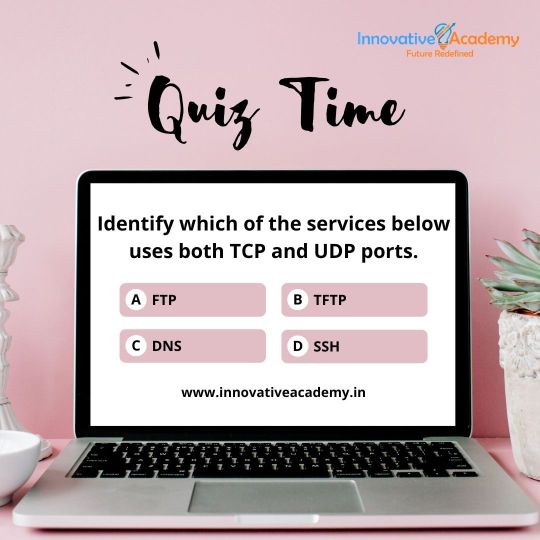
Quiz Time
Visit: https://innovativeacademy.in
Call us: +91 8447712333
#InnovativeAcademy#microsoftcertifications#linux#linuxcertifications#cloudcomputing#awscloud#ccnacertifications#cybersecurity#coding#developer#RedHatTraining#redhatlinux#machinelearning#bigdata#googlecloud#iot#software#java#awstraining#ccna#javascript#gcp#security#CCNAQuiz#CISCO#Network#Microsoft#itcourses#quiz
0 notes
Text

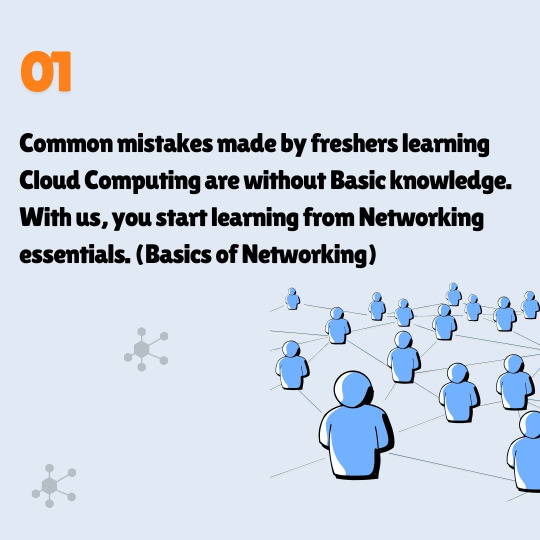
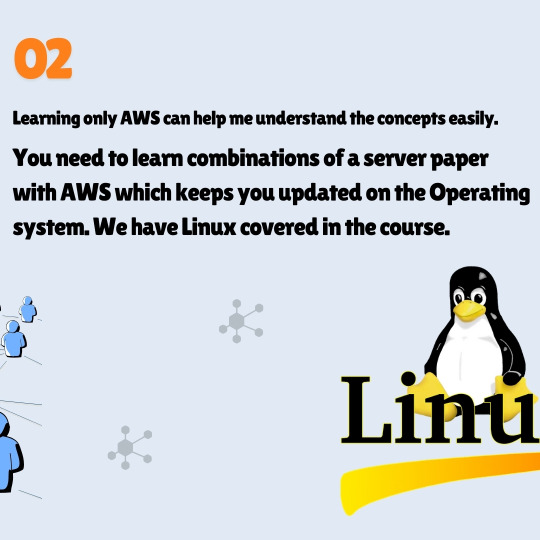
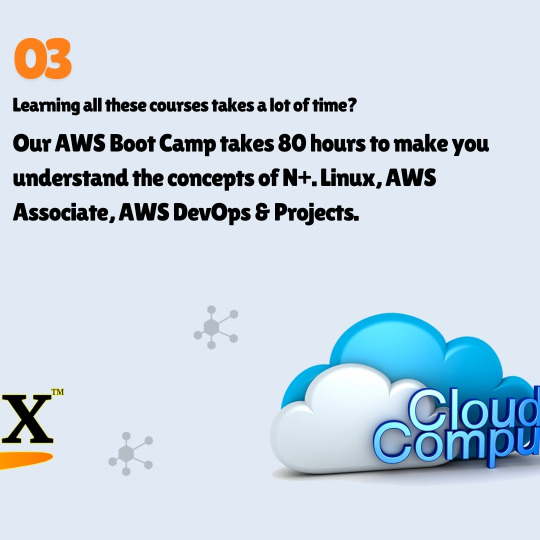
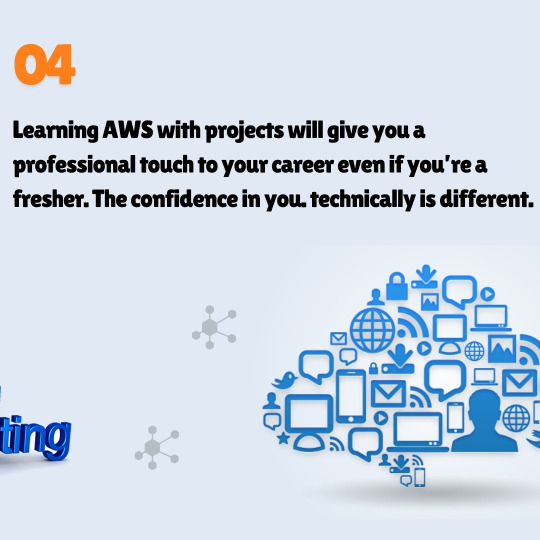
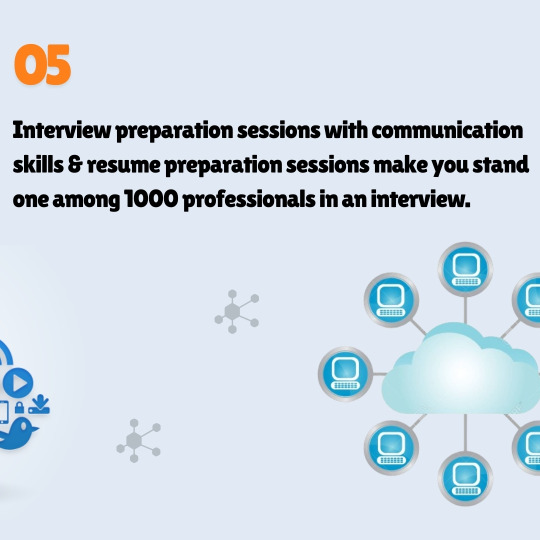
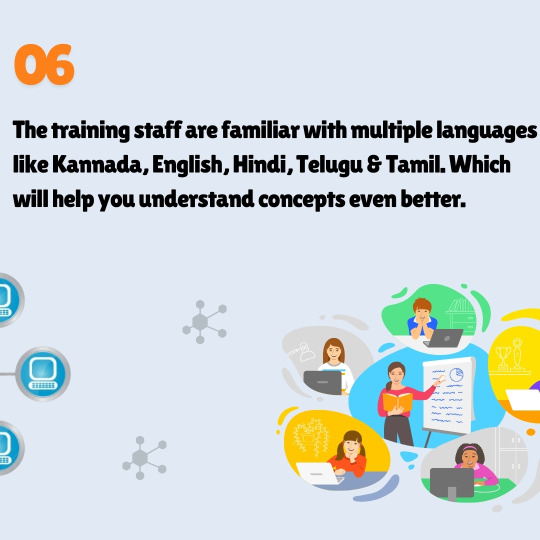
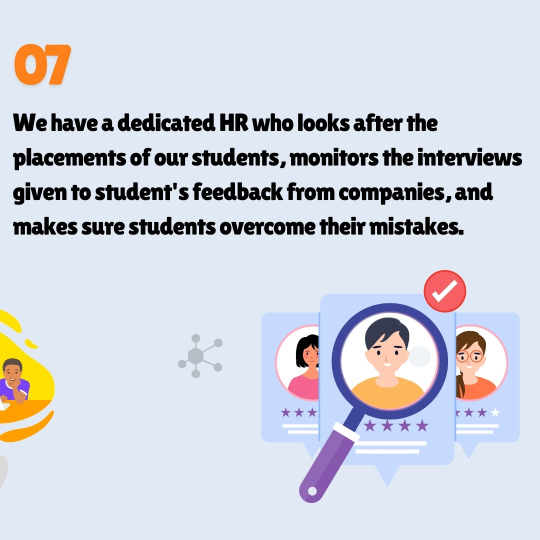
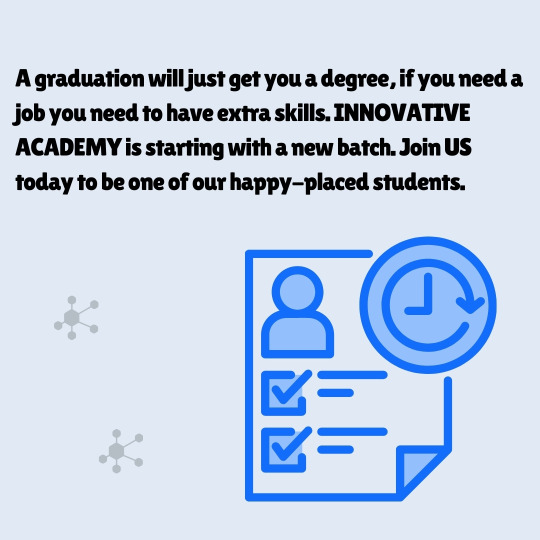
In recent years, cloud computing has established itself as one of the most popular software choices among enterprises worldwide.
Its most desirable feature is the ability to connect to it from anywhere in the globe. Furthermore, it improves operational efficiency and lowers IT costs.
Here are the top seven benefits of learning cloud computing with INNOVATIVE ACADEMY.
Visit: https://innovativeacademy.in
Call us: +91 8447712333
#cloudecomputing#cloudcomputingservices#cloudcomputingsystem#cloudcomputingtraining#cloudcomputingsolution#cloudcomputingcourse#cloudcomputingarchitecture#awscloudcomputing#cloudcomputingcourses#cloudcomputingsolutions#cloudcomputingapplications#cloudcomputingtechnology#cloudcomputingfacts#learncloudcomputing#cloudcomputingisthefuture#futureofcloudcomputing
0 notes
Text

10 Benefits of Cloud Computing course
Table of contents
Introduction
Models of Cloud Computing
Why Cloud Computing?
Conclusion
FAQ’s
INTRODUCTION
In today’s fast-paced digital landscape, where connectivity and data are the backbone of businesses and individuals alike, the advent of cloud computing has sparked a revolution. Imagine a world where the traditional constraints of computing—physical servers, limited storage capacity, and costly infrastructure—are rendered obsolete. In this world, computing power is no longer confined to local hardware but instead flows effortlessly through the virtual corridors of the internet.
Cloud computing represents a paradigm shift—a fundamental reimagining of storing, processing, and accessing data. At its core, it is a model that offers computing services over the Internet, providing users with on-demand access to a vast array of resources, including servers, storage, databases, and software applications. This shift from owning and maintaining physical hardware to leveraging remote, virtualized resources has profound implications for businesses, organizations, and individuals alike.
The cloud has become an indispensable tool for driving innovation, enhancing productivity, and achieving strategic objectives, from the smallest startups to the largest multinational corporations. Its scalability, flexibility, and cost-efficiency have empowered organizations to adapt quickly to changing market conditions, experiment with new ideas, and deliver value to customers at unprecedented speed.
However, the significance of cloud computing extends far beyond its technological capabilities. It represents a democratization of computing power—a leveling of the playing field that enables startups and small businesses to compete on equal footing with established industry giants. It fosters collaboration and innovation, breaking down barriers to entry and unlocking new opportunities for growth and advancement.
MODELS OF CLOUD COMPUTING
Cloud computing is a transformative approach that leverages the internet to provide access to a wide range of computing resources and services on demand. Rather than relying on physical hardware and local servers, cloud computing enables users to access and utilize virtualized resources hosted on remote servers maintained by cloud service providers.
At its core, cloud computing offers three primary service models:
Infrastructure as a Service (IaaS): This model provides users with virtualized computing resources, such as virtual machines, storage, and networking capabilities, on a pay-as-you-go basis. Users have full control over the operating systems, applications, and development frameworks running on these virtualized resources.
Platform as a Service (PaaS): PaaS offers a complete development and deployment environment in the cloud, allowing developers to build, test, and deploy applications without worrying about the underlying infrastructure. PaaS providers manage the infrastructure, runtime, middleware, and development tools, enabling developers to focus solely on writing code.
Software as a Service (SaaS): SaaS delivers software applications over the internet on a subscription basis. Users access these applications through a web browser or API without needing to install or maintain any software locally. Popular examples of SaaS applications include email services, customer relationship management (CRM) platforms, and productivity suites.
In addition to these service models, cloud computing encompasses various deployment models:
Public Cloud: Public cloud services are provided by third-party vendors over the Internet and are available to anyone who wants to use or purchase them. These services are hosted and managed by the cloud service provider, offering scalability, flexibility, and cost-efficiency.
Private Cloud: Private cloud services are dedicated to a single organization and are typically hosted either on-premises or by a third-party provider. Private clouds offer greater control, security, and customization options compared to public clouds, making them suitable for organizations with strict compliance requirements or sensitive data.
Hybrid Cloud: Hybrid cloud combines public and private cloud environments, allowing organizations to leverage the benefits of both. It enables seamless integration between on-premises infrastructure and public cloud services, providing flexibility, scalability, and workload portability.
WHY CLOUD?
1. Cloud: Your Virtual Growth Spurt
Scalability without boundaries: Easily increase or decrease resources based on demand, ensuring that your infrastructure can grow with your business needs.
Dynamic resource allocation: Allocate resources dynamically, optimizing performance and minimizing wastage.
Cost savings through efficient resource utilization: Pay only for the resources you use, avoiding unnecessary expenditure on idle infrastructure
The Freedom of Anywhere, Anytime Access
Remote access to data and applications: Access critical business data and applications from anywhere in the world, enabling remote work and enhancing productivity.
Increased productivity and flexibility: Empower employees to work on their terms, whether they’re in the office, at home, or on the go, leading to greater efficiency and work-life balance.
Enhanced collaboration across geographies: Break down geographical barriers and foster collaboration among teams spread across different locations, driving innovation and teamwork.
Innovation at the Speed of Imagination
Instant access to cutting-edge technologies: Leverage a wide range of cloud services and tools to experiment, prototype, and innovate rapidly without the need for upfront investment in infrastructure.
Rapid experimentation and prototyping: Quickly test new ideas and concepts, iterating at speed to bring innovative products and services to market faster.
Accelerated time-to-market for new ideas: Reduce time-to-market for new products and features by streamlining development and deployment processes, gaining a competitive edge in the marketplace.
Cost-Efficiency: Pay Only for What You Use
Elimination of upfront hardware costs: Avoid the capital expenditure associated with purchasing and maintaining physical hardware, shifting to an operational expenditure model that aligns costs with usage.
Predictable, pay-as-you-go pricing model: Enjoy predictable billing and budgeting with pay-as-you-go pricing, scaling resources up or down as needed without long-term commitments.
Optimal resource utilization, minimizing waste: Maximize resource utilization and minimize waste by scaling resources dynamically based on demand, optimizing cost-efficiency and performance.
Collaboration: Building Castles in the Clouds
Real-time collaboration on documents and projects: Collaborate seamlessly with colleagues and partners in real-time, editing documents, sharing files, and working together irrespective of location.
Seamless sharing of data and resources: Share data and resources effortlessly within and across teams, breaking down silos and facilitating cross-functional collaboration.
Enhanced communication and teamwork: Foster a culture of communication and teamwork with cloud-based collaboration tools, enabling employees to work together more effectively and efficiently.
Security: Fort Knox in the Cloud
Robust encryption and authentication mechanisms: Protect sensitive data with robust encryption and authentication mechanisms, ensuring that only authorized users can access critical resources.
Continuous monitoring and threat detection: Monitor cloud environments continuously for suspicious activity and potential security threats, proactively identifying and mitigating risks.
Compliance with industry standards and regulations: Ensure compliance with industry standards and regulations by leveraging cloud providers’ security certifications and compliance programs, minimizing legal and regulatory risks.
Disaster Recovery: Cloud’s Safety Net
Automated backup and recovery solutions: Implement automated backup and recovery solutions in the cloud, ensuring data integrity and availability in the event of a disaster or system failure.
Geographic redundancy for data protection: Replicate data across multiple geographic regions to ensure redundancy and resilience, protecting against data loss and minimizing downtime.
Minimized downtime and business continuity assurance: Minimize downtime and ensure business continuity by leveraging cloud-based disaster recovery solutions that enable rapid failover and recovery in case of disruptions.
Flexibility: Your Digital Shape-Shifter
On-demand resource allocation and scaling: Scale resources up or down on demand to meet changing business requirements, ensuring optimal performance and cost-efficiency.
Ability to adapt quickly to changing business needs: Adapt quickly to changing market conditions and business needs by leveraging the flexibility of the cloud, and deploying new services and applications rapidly.
Freedom to experiment and innovate without constraints: Experiment and innovate without constraints by leveraging cloud resources, and testing new ideas and concepts with minimal risk and investment.
Environmental Impact: Cloud’s Green Thumb
Energy-efficient data centers and infrastructure: Leverage energy-efficient data centers and infrastructure provided by cloud providers, reducing environmental impact and carbon emissions.
Shared resources leading to reduced carbon footprint: Share resources efficiently in the cloud, reducing overall energy consumption and carbon footprint compared to traditional on-premises infrastructure.
Contribution to corporate sustainability goals: Contribute to corporate sustainability goals by adopting cloud computing, aligning with broader initiatives to reduce environmental impact and promote sustainability.
Competitive Edge: Soar Above the Competition
Faster innovation cycles and time-to-market: Innovate faster and bring new products and features to market ahead of the competition by leveraging cloud computing’s agility and scalability.
Improved agility and responsiveness to market demands: Respond quickly to changing market conditions and customer demands by adapting and scaling resources dynamically in the cloud, staying ahead of competitors.
Enhanced customer experiences and satisfaction: Deliver superior customer experiences and satisfaction by leveraging cloud-based solutions to provide innovative products and services that meet customer needs and expectations.
CONCLUSION
Joining cloud computing opens doors to a world of endless possibilities. It’s about becoming part of a dynamic ecosystem where innovation thrives, opportunities abound, and boundaries are constantly pushed. In this realm, you’ll find yourself at the forefront of technological advancements, collaborating with brilliant minds from around the globe to tackle complex challenges and drive meaningful change. Embracing cloud computing isn’t just about a career—it’s about embarking on an exhilarating journey where every day brings discoveries and the chance to make a lasting impact.
FAQ’s
Q1) Which is the best Institute in Bengaluru to learn Cloud?
Innovative Academy in Bengaluru provides the best Cloud learning courses in Bengaluru.
Q2)How is Cloud better than other networking platforms? Ans)
Read the above article “Why to Choose Cloud”.
Contact for Course Details – 8447712333
0 notes
Text
Sanjana Kashyap Journey from Beginner to Employed: Navigating Success at Innovative Academy.
"Embark on your educational journey at Innovative Academy, where innovation meets excellence. Gain cutting-edge skills, mentorship, and hands-on experience. Through our comprehensive curriculum and industry partnerships, unleash your potential and secure a bright future with our 100% placement record. Start your transformational journey today at Innovative Academy."
Visit us @ https://innovativeacademy.in
For any enquiries Call us: +91 8447712333
#DevOps#Bootcamp#InnovativeAcademy#CareerGrowth#aws#ittraining#cloud#cloudcomputing#networking#ccna#java#fullstack#css#devopsengineer#placements#itcourses#graduate#offer#projects#engineer#ccnatraining#awstraining#devopstraining#networktraining
0 notes
Text
How to Become a DevOps Engineer in simple yet effective ways

Table of contents
What is a DevOps Engineer?
Who can become a DevOps Engineer?
How to Become a DevOps Engineer?
A Certified DevOps Professional
Choosing the right Certification Training
Any growing organization has to consistently deal with change management while bringing digital transformation and automation into its existing business structure. This inspired big organizations to designate certified DevOps Engineers with subject matter expertise in understanding business operations and the development/deployment cycle.
The question of “How to become a DevOps Engineer” has a simple answer once you have designed the right roadmap for your goals. To meet industry demand and stay updated on the latest, it is important to hold a certificate validating your skills to be professionally ready for the role.
What is a DevOps Engineer?
A DevOps Engineer, as an experienced professional, works for the best of both worlds – Development and Operations. The skills and knowledge are deep-rooted into the business operation, management goals, coding, and development ensuring continuous integration and continuous deployment. A certified DevOps professional is an expert in a wide range of skills covering engineering application codes and knows all possible developer toolsets to manage the build and deployment of applications in line with the operational outcome. The role also involves understanding system administration, reviewing deployment codes in an agile
environment, version control, testing, and automation. Apart from technical mastery, a DevOps engineer has bonding and seamless communication with the management as well as among the
IT and Ops teams.
The roles of these influential professionals vary with the organizations but entail the common concepts of operational sustainability, system administration, automation, and development.
For any cloud infrastructure setup, the responsibilities involve visualization, provisioning, and managing virtual components. Overall, for companies following seamless CI/CD, the DevOps
professional is a bridge connecting the IT team, operations, and management to inspire efficient and cost-effective decision-making.
Who can become a DevOps Engineer?
Before we explore how to become a DevOps engineer, A Professional DevOps Engineer needs to be an influential individual in a business and closely influence management decision-making. It is expected to have an in-depth knowledge of computer science and coding applications, development cycles, and business administration.
To answer, anyone with a knack for computer science and technical skills can choose DevOps engineering as their career. Although, aspiring to have a successful career as a DevOps Engineer, it is important to have the following pre-skills before starting with professional certification training.
Knowledge of programming languages and scripts: A DevOps engineer is required to manage and review application codes before deployment. It becomes important to be acquainted with the latest programming languages like Javascript, Python, and Perl, and know different frameworks.
Developer Tools and Technologies: More than the actual development, a DevOps professional has to be thorough with the various operational stages, perform testing, review and integrate scripts, and make recommendations. It is an advantage to have
some experience with toolkits like Selenium, Jenkins, Docker, etc.
Communication & Collaboration: As a DevOps engineer you would be communicating across departments and management to ensure the seamless development and deployment process.
Logical Interpretation & Reasoning: A rational and logical attitude could be a key skill for you to handle objectionable situations and make sensible decisions.
How to Become a DevOps Engineer?
Now that we are well aware of what exactly the roles of a DevOps Engineer are and the prerequisites of choosing DevOps as a career, let’s answer, How to become a DevOps Engineer in a few simple steps.
Master the technical skills and programming language: As a DevOps Engineer, you must have excellent code reviewing skills, and in-depth knowledge of the agile development process, application testing, and networking. Often the major Key
Responsible Areas (KRA) of a DevOps Engineer is knowing in-depth the developer’s toolkits and the development cycle of an application. A dedicated passion is needed for API management and coding.
Cloud Infrastructure & Virtualization: With cloud infrastructure ruling business operations and data, there are different versions of virtualization available today. As a DevOps professional, it is an advantage to have at least 1-2 years of experience with VMware, Hyper-V, KVM, etc.
Networking and System Architecture: Being an influential role of a DevOps engineer, a professional must have experience with implementing and keeping an eye on hardware technologies like networks, servers, and mainframes.
Soft skills: The reason why a DevOps engineer is always in high demand is cause DevOps professionals not only master the tools and technologies but also excel in professional soft skills like collaboration, communication, customer experience, leadership, and problem-solving abilities. Being proactive and having a creative approach to handling situations often pushes the boundaries of experience. It is not always expected a DevOps professional to have a solution at all times, however, bringing up the team and proper communication can do the trick.
Don’t forget to get Trained and Certified: Without proper training or in-depth knowledge of various attributes, it is difficult to crack job opportunities in leading companies. A certified DevOps engineer is highly valued and preferred over others who have not validated their skill sets as per industry needs.
Build a resume & a stronger portfolio: Once certified, you will be open to a lot of job vacancies but never underestimate the competition. Being a DevOps engineer is not only about tools but real-life operation experience. Get involved in internships or
handling real-time projects assigned by the training academy. The top certification training institutes ensure to bring you internships and job opportunities as well as help you build a strong resume and portfolio.
A Certified DevOps Professional
The top DevOps Certification providers will not only draw you the roadmap of how to become a DevOps Engineer within 6-12 months but will also bring you job opportunities. Mostly, the training modules are designed to teach you the concept right from scratch. Although, having the set of pre-requisite skills accelerates your learning graph.
The top certification training curriculum is designed relevant to the latest industry requirements and lets you have hands-on experience with the advanced tools through live projects.
The job market for DevOps engineers is highly lucrative with an average rise of 13-15 % each year in vacancies for trained DevOps professionals with over a 50% rise in mentioning DevOps as a skill. As DevOps Engineers are responsible for maximizing productivity with reduced resource utilization, a certified professional is demanded in almost every industry sector.
There is a huge demand for well-trained certified DevOps engineers and it can be quite challenging for freshers to directly compete for such an influential role. The average salary offered to a certified DevOps professional at the beginning of their career is INR 10 LPA. With experience, the packages go higher to around INR 30 LPA (source: glassdoor) for a Senior or Lead DevOps engineer.
Choosing the right Certification Training
Now, if you have the answer to the most effective way how to become a DevOps engineer, it’s time to get yourself enrolled in the best DevOps training institutes in Bangalore. However, there are a few factors to consider before choosing the right DevOps training
academy.
Industry-designed curriculum: When getting trained in a highly technical IT domain, it is important to look out for industry-oriented curriculum design. Such a curriculum is meant to train you more with hands-on experience in real-time and live projects
allowing you to experience advanced tools and concepts.
Industry Mentors & faculty: The faculties for DevOps Engineer training programs are mostly industry experts and experienced corporate mentors focusing on practical learning.
Job & Placement: Last but not least, choosing to become a certified DevOps Engineer is mostly about a successful career. The experience in the beginning days lays a foundation for a successful career in the future. So, look out for institutions that have a portfolio of placing alumni and offer professional grooming support.
On the outro, we are quite clear on How to become a DevOps Engineer with fewer steps. Overall the technical knowledge, becoming a DevOps professional is not only about the tools and
software. Understanding the exact goals of the organization, and its operation strategies, and collaborating across departments to ensure efficient productivity, seamless automation, and cost-effective digital transformation. This mostly highlights the importance of getting trained and certified to validate the skills specifically required for a DevOps professional. However, experience has brought the best out of any profession.
0 notes
Text

Unlock the secrets of the web and elevate your skills in top-tier web design and development with #Innovative academy 🚀 Become the best in the game. 💻💡
Visit us @ https://innovativeacademy.in
For any enquiries Call us: +91 8447712333
#DevOps#Bootcamp#InnovativeAcademy#CareerGrowth"#aws#ittraining#cloud#cloudcomputing#networking#ccna#java#fullstack#devolaper#css#coading#devopsengineer#html
0 notes
Text

Wishing you a joyful Eid filled with love, happiness, and blessings.
.
Visit: https://innovativeacademy.in
Call us: +91 9538836216
.
.
.
#InnovativeAcademy#microsoftcertifications#linux#linuxcertifications#cloudcomputing#awscloud#ccnacertifications#cybersecurity#coding#developer#RedHatTraining#redhatlinux#software#java#awstraining#ccna#javascript#eid#eidmubarak
0 notes
Text
Getting AWS Certified in Bangalore with assured Placement assistance.
Table of contents:
What types of certifications are offered by AWS?
There are 4 levels of certification offered;
Here are some of the most popular AWS certifications in 2024
Certification Exam
Benefits of getting AWS Certified
What is the career scope with AWS certifications?
Your Next Step – Getting AWS Trained & Certified
The cloud is the future! Agreeing with this, if you aspire to uplift your career in the IT industry with the Best AWS Course with Placement Assistance in Bangalore; kudos! This article brings you exactly what you need to know to become a master in administering AWS cloud infrastructure.
With the rapid pace of organizations transforming their business operations into cloud-based solutions for better security, data management, and accessibility, the demand for cloud professionals also keeps rising. And being the early leader in cloud solution services providers, Amazon Web Services or AWS was all set to cater to business globally.
The top AWS certification training institute in Bangalore offers an advanced training curriculum, networking opportunities, flexible timings, and importantly, assured placement support. The AWS course module is designed to let you experience advanced AWS tools and the AWS cloud infrastructures to have more practical knowledge.
What types of certifications are offered by AWS?
AWS today with a 31% market share, has clearly defined itself as the leader in the cloud infrastructure market offering a huge range of services to a mammoth client base. To address this rising demand for professionals with in-depth knowledge of AWS solutions and services, Amazon introduced various certifications at every professional level that validate the required skills and knowledge to administer an advanced cloud infrastructure.
Amazon offers several certifications at various professional levels to validate cloud skills in several pathways. There are 13 AWS certifications right from the foundation of administering cloud infrastructure to engineering high-end technologies in AWS, issued and validated by Amazon. Choosing one pathway to proceed and getting the right AWS certification that validates your skills is important.
AWS Cloud Practitioner
AWS Certified Sysops Administrator – Associate
AWS Certified Solutions Architect – Associate
AWS Certified Developer – Associate
AWS Certified Data Engineer – Associate
AWS Certified Solutions Architect – Professional
AWS Certified DevOps Engineer – Professional
AWS Certified Advanced Networking – Specialty
AWS Certified Database – Specialty
AWS Certified Machine Learning – Specialty
AWS Certified Data Analytics – Specialty
AWS Certified Security – Specialty
AWS Certified SAP on AWS – Specialty
There are 4 levels of certification offered;
Foundational: The certification lets you lay the foundational knowledge of cloud infrastructure and highlights AWS services. At this level, the training is focused on various use case scenarios, the compliance aspect of AWS along with billing and account management. The foundation level is suited with at least 6 months of experience in any technical or sales field in the IT industry.
Associate: The certification is offered for role-based skills on AWS as a cloud professional imparting broader insights into AWS services like Virtual Private Cloud (VPC), DynamoDB, Elastic Compute Cloud (EC2), Simple Queue Service (SQS), and Identity Access Management (IAM). The training includes hands-on experience with databases, storage, and networking services offered by Amazon. It is expected to have prior on-premise experience with Python and AWS Software Development tool kits.
Professional: A higher level of certification to validate advanced skills to administer and automate AWS cloud solutions based on an organization or business need. The certificate program trains to master advanced skills to design AWS solutions while understanding its optimal application in a business. A 2-year experience in cloud computing and system administering is a must to clear the certificate.
Specialty: Amazon’s 6 advanced specialty courses involve deep diving into concepts, generally applicable for higher positions of advisors. The specialty programs master in 4 major domains of AWS cloud services validating expert-level professional skills to perform complex operations. The program demands prerequisite experiences of working with VPNs, VPLS, Routing & connectivity solutions, automation tools, MPLs, etc.
Here are some of the most popular AWS certifications in 2024
AWS Solution Architect: An AWS Solution Architect associate or a professional has certified skills to design the most optimal cloud solutions that map all the business requirements of the organization. An AWS solution architect gathers all the requirements from the organization and connects with the AWS solution team to strategize and design the most efficient cloud infrastructure possible.
The profile has a high-end career scope with up to Rs. 20 LPA salary packages at an experienced level. With experience as a professional AWS solution architect, there are multiple future career options to choose from a specialty levels.
An AWS Certified Sysops Administrator is the most popular AWS Certification program to kick-start your career as a cloud professional. A system administrator ensures to monitoring, engagement, and deploy AWS services within an organization’s infrastructure. A professional manages and operates AWS solutions while configuring networks, and managing storage, databases, and compliances. At experience levels, an AWS Sysops Administrator also deploys
automation to operations using AWS CloudFormation, AWS System Manager, and other frameworks.
As a fresher, the profile offers an average of Rs. 4-5 LPA to start while at an experience level, the salary packages can go up to Rs. 12-13 LPA. However, at a certain experience level, upskilling through specialized certification adds more to the future career scope.
Certification Exam
To become a certified AWS professional or a cloud administrator, it is mandatory to clear the certification exam by Amazon. The exam timing depends on the certifications and varies from 130 minutes to 180 minutes with the MCQ question format.
Benefits of getting AWS Certified
In the corporate race, it has become a mandate to keep upskilling and validating your professional skills. The 1000-billion-dollar global cloud computing has a lot to offer when it comes to lucrative career options to pursue. AWS captures the biggest share of the market, as an AWS-certified professional, you can have endless job opportunities and exposure on a global stage. Yet, here are the top 3 benefits of being an AWS-certified professional in Bangalore.
Upskill with the latest trends and technologies: The certification training program designed by Amazon and taught by industry experts and corporate mentors helps you become a professional in administering the latest trends, technologies, and products in the cloud industry.
Be a part of Amazon’s Certified Global Community: Not only do you get to showcase the digitally certified badges in your career portfolio, but becoming an AWS-certified professional gets you enrolled in the world’s largest certified community of cloud professionals. The community gets you access to grow your network of peers on a global stage that only adds to your career profile.
Get eligible for high-end career opportunities: Getting certified by Bangalore’s top AWS training institutes brings you multiple job opportunities to kick-start your career in the IT industry. The certification programs include an overall professional training program with mock interviews, resume-building sessions, corporate interaction, professional grooming, etc. to make you industry-ready.
What is the career scope with AWS certifications?
The impact of AWS in reshaping the IT infrastructure and cloud computing tech is immense. According to reports, organizations transforming their operations with cloud computing solutions will rise by 51% by 2025. This in turn surges the demand for more certified and well-trained cloud computing professionals to manage and implement AWS cloud services while driving innovation.
Amazon AWS, the largest public cloud service provider, offers a range of certifications with dynamic career paths to choose from. Each certification validates professional skills to administer or engineer AWS services and infrastructure. Among multiple job profiles to choose from, some of the most popular ones like AWS Cloud Administrator, AWS Cloud Engineer, Cloud Architect, etc., can fetch salary packages of above Rs. 30 LPA with experience. As per Glassdoor, the average annual salary of an AWS-certified cloud solution architect is around Rs. 16 LPA.
The cloud computing market segment in India offers immense opportunities with all major job & hiring portals having listed vacancies for certified AWS professionals. With experiences in relevant fields, the career opportunities almost multiplied 6 times with more dynamic and specialized roles within the IT industry. Importantly, along with the certification, you are also enrolled in the global network of Amazon-certified professionals’ community that offers a great peer-to-peer learning opportunity. It also gives you access to all the latest events on AWS-certified lounges and AWS summit events.
Your Next Step – Getting AWS Trained & Certified
So, once you can visualize the potential career opportunities with an AWS certification and aspire for a successful career, it is time to get AWS certification with placement assistance in Bangalore. The training will equip you with all the necessary skills, in-depth knowledge, access to advanced AWS tools and live projects, and access to the AWS Partner network.
The certification training program brings a holistic curriculum designed by Industry experts to ensure you are trained as per the latest cloud computing trends and projects. Enrolling at the top AWS training center in Bangalore, you can easily clear the certification exam with placement support. You would also learn the ins and outs of the corporate world along with mock interviews and resume-building sessions.
To understand which certification course to take up, career counseling sessions and a demo class would help you decide better. The HR Team at the training institute keeps bringing in the trending AWS job opportunities once your certification is complete. Importantly, you can keep learning and unlock more certifications with experience to upskill and rise higher in your career graph.
0 notes
Text
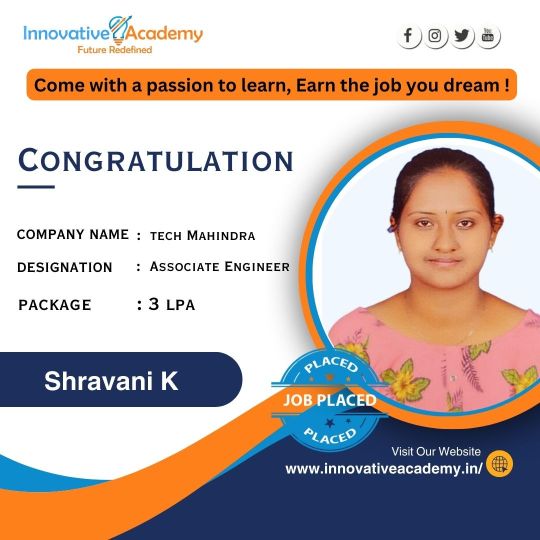
It's yet another moment of pride for us at Innovative Academy. Another student from the Academy has been placed. Congratulations on your new journey!
https://innovativeacademy.in
Call us: +91 9538836216
#aws#awsdeveloper#awsdevops#awscertification#awssolutionsarchitect#awspractitioner#ittraining#ittrainingcenter#cloud#cloudcomputing#microsoft#microsoftazuretraining#micrsoftazureadmin#networking#ccna#cisco#linux#linuxtraining#bangalore#googlecloud#azurecloud#ccnaroutingandswitching#placements#itjobs#itjobsearch#innovativeacademy#techmahendra
0 notes
Text
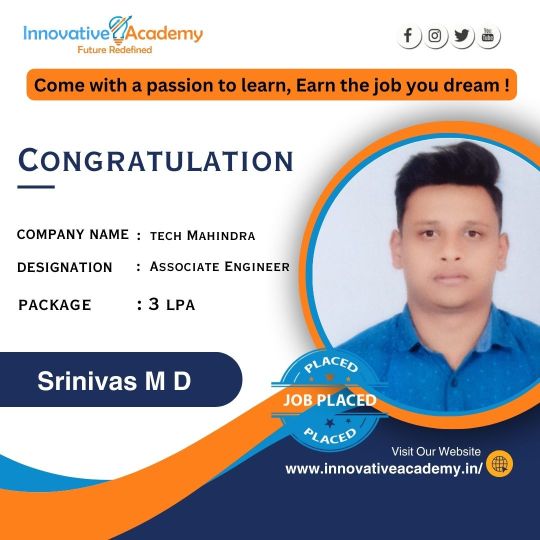
It's yet another moment of pride for us at Innovative Academy. Another student from the Academy has been placed. Congratulations on your new journey!
https://innovativeacademy.in
Call us: +91 9538836216
#aws#awsdeveloper#awsdevops#awscertification#awssolutionsarchitect#awspractitioner#ittraining#ittrainingcenter#cloud#cloudcomputing#microsoft#microsoftazuretraining#micrsoftazureadmin#networking#ccna#cisco#linux#linuxtraining#bangalore#googlecloud#azurecloud#ccnaroutingandswitching#placements#itjobs#itjobsearch#innovativeacademy#techmahendra
0 notes
Text
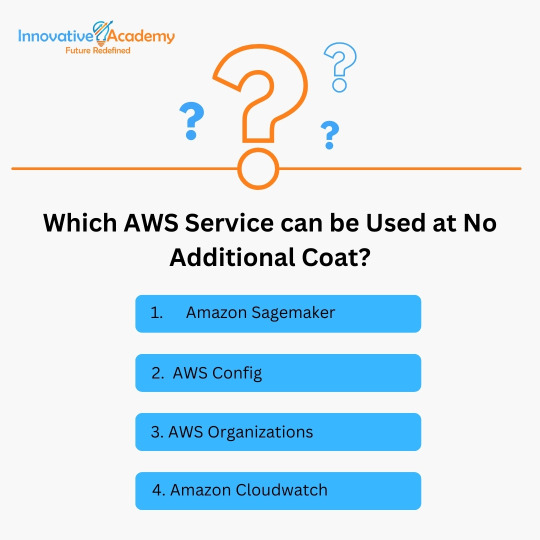
Quiz Time
Visit: https://innovativeacademy.in
Call us: +91 8447712333
#InnovativeAcademy#microsoftcertifications#linux#linuxcertifications#cloudcomputing#awscloud#ccnacertifications#cybersecurity#coding#developer#RedHatTraining#redhatlinux#machinelearning#bigdata#googlecloud#iot#software#java#awstraining#ccna#javascript#gcp#security#CCNAQuiz#CISCO#Network#Microsoft#itcourses#quiz
0 notes
Text
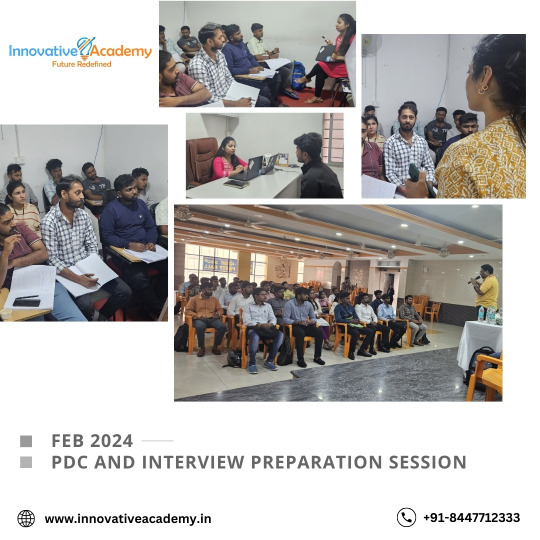
"🌟 Elevate your career with our exclusive PDC and Interview Preparation Session! 🚀 Join us for a dynamic workshop designed to empower you with the skills and confidence needed to ace your next professional challenge. 💼 From mastering behavioral interviews to polishing your resume, we've got you covered. 📝 Don't miss out on this opportunity to supercharge your career journey! Limited slots are available, so reserve yours now! #CareerDevelopment#InterviewPrep#ProfessionalGrowth#SkillsWorkshop"
Call us - +91-8447712333
0 notes
Text

"Nine years of innovation, inspiration, and impact! 🎉 Today, we celebrate Innovative Academy's 9th anniversary, marking nearly a decade of empowering minds and shaping futures. From our humble beginnings to this milestone, we've remained committed to fostering creativity, curiosity, and excellence in education. Thank you to our dedicated staff, passionate students, and supportive community for being a part of our journey. Here's to many more years of growth, learning, and success! 🌟"
0 notes
Text

🎉 Celebrating 9 Years of Innovation with Innovative Academy! 🚀✨ Join us in commemorating a journey filled with learning, growth, and technological advancements. 📚💡 As we mark this milestone, we're thrilled to announce exclusive offers on Networking and Cloud Computing courses! 🌐💻 Don't miss this opportunity to upgrade your skills and stay ahead in the ever-evolving tech industry. Let's continue shaping the future together! 🎓🔗
https://innovativeacademy.in
Call us: +91 8447712333
.
.
#InnovativeAcademy#9thAnniversary#Networking#CloudComputing#TechEducation#celebratinganniversary#aws#devops#ccna#azure#itcourses#jobassistance#placement#career#education#bangalore#offer#offersale#celebration
0 notes
Text
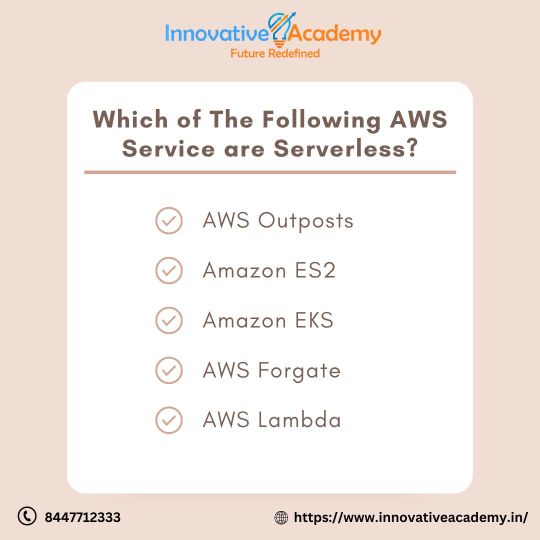
Quiz Time
Visit: https://innovativeacademy.in
Call us: +91 8447712333
#InnovativeAcademy#microsoftcertifications#linux#linuxcertifications#cloudcomputing#awscloud#ccnacertifications#cybersecurity#coding#developer#RedHatTraining#redhatlinux#machinelearning#bigdata#googlecloud#iot#software#java#awstraining#ccna#javascript#gcp#security#CCNAQuiz#CISCO#Network#Microsoft#itcourses#quiz
2 notes
·
View notes